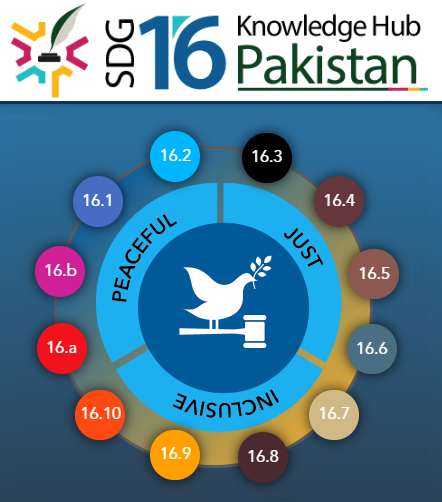

International Day for Judicial Well-being: A Global Call for Action (4 Mar, 2025)
Pakistan Ranks 129 out of 142 in the World Justice Project Rule of Law Index (26 Oct, 2024)
2024 Trafficking in Persons Report: Pakistan (24 June, 2024)
Pakistan ranks second-last in WEF Global Gender Gap Report 2024 (7 Mar, 2025)
Ordinances should be an exception, not norm: expert

Fri, November 27, 2020
ISLAMABAD:
Senior jurist Abid Hassan Minto has told the Islamabad High Court (IHC) that promulgation of an ordinance by the president should be an exception and not a norm.
"The 1973 Constitution clearly requires that an ordinance may only be promulgated by the president when firstly, the Senate and the National Assembly are not in session and secondly when the circumstances require immediate action.
“If either of these conditions is not met, the president may not promulgate an ordinance and an ordinance issued otherwise than with these conditions obtaining would be void ab initio,” Minto noted in his written opinion about the scope of the powers of the president under Article 89.
In January, the IHC had appointed four eminent jurists – Abid Hassan Minto, Raza Rabbani, Babar Awan and Makhdoom Ali Khan – as amici curiae to assist the court in adjudicating petitions filed against the excessive reliance of the incumbent government on ordinances.
The PTI led government has so far promulgated more than 30 ordinances in its more than 2 year tenure.
Minto in his opinion referred to the same article and said the provision makes it clear that the ordinance making powers of the president are an exception and not the norm. He said the power to promulgate ordinance cannot be exercised as a matter of routine.
“The Constitution clearly establishes that it is the will of the people that legislation must ordinarily follow the procedure set out in Articles 70-88 of the Constitution.”
The senior lawyer said the power to promulgate ordinance can be traced back to the colonial times. The laws that were in force prior to the 1935 Act did not presume a democratic form of government and did not entitle the citizens of the United India to self-rule.
Minto endorsed the basic contention of the petitioner that the use of ordinances for routine legislation is unconstitutional and travels beyond the scope of Article 89. He said sweeping powers of the president to supersede legislature at will are no longer part of our Constitution dispensation.
“The Constitution acknowledges the vesting of some inalienable rights in the citizens which may be enforced through courts. However, the principles of policy are not generally considered justiciable and enforceable by the courts.
"The will of the parliament to not legislate or to delay legislation has to be assumed and the president cannot step into supplementing the same,” Minto said. He noted that if the making of an ordinance does not pass the test laid down in Article 89 (1), it will be open to determination as to its bona fide.
“An ordinance is promulgated on advice of the political government, the federal cabinet which comprises the elected representatives of the people otherwise competent to initiate legislation in accordance with normal legislative process recognized under 1973 Constitution.
“Therefore, the constitutional courts while protecting sanctity of the 1973 Constitution in letter and spirit must be mindful of the fact that the government of the time may be attempting to circumvent the normal legislation process fearing resistance from opposing voices in the parliament."
He said the superior courts of this country have deprecated the running of the affairs of the government through ordinance making instead of through permanent enactments and held that it is unlawful to promulgate ordinance after ordinance in order to avoid bringing a bill in the parliament.
Minto has over 65 years of experience at the bar, having entered the legal profession in 1955. Besides being an eminent constitutional lawyer, he has remained a life-long political worker and continues to head the Awami Workers Party.
Copyright © 2026 pjn.org.pk








